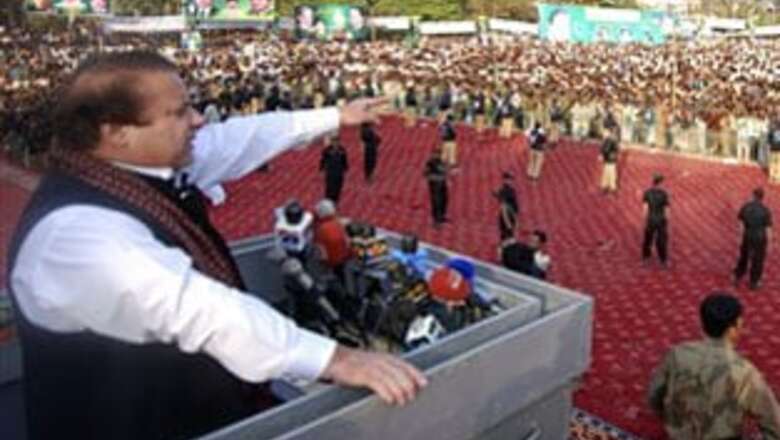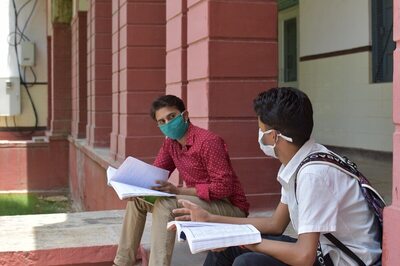
views
Karachi: Hundreds of black-suited Pakistani lawyers and flag-waving opposition activists launched a cross-country protest on Thursday, as the year-old civilian coalition government scrambled for ways to avert a showdown.
The movement for an independent judiciary could destabilise President Asif Ali Zardari's government at a time when the nuclear-armed US ally faces severe problems from Islamist militants and a sinking economy.
Police have detained hundreds of political activists since Wednesday and banned public rallies. But Interior Ministry chief Rehman Malik said on Thursday the so-called ''long march'' that set out from the cities of Karachi and Quetta would be allowed to go ahead.
''We'll not stop them, but if someone tries to take the law in his hand I must say in the house that he won't be allowed,'' Malik told the National Assembly.
''This is a war for power and rule and unless we get out of this sphere, such things will keep on happening.''
Opposition leader and former prime minister Nawaz Sharif has thrown his weight behind the lawyers, putting him into open confrontation with Zardari.
Infuriated by a Supreme Court ruling barring him and his brother from elected office, and by Zardari ejecting his party from power in Punjab province, Sharif has called the protest a defining moment for Pakistan.
Stoking tension in a country with a grim record of assassinations, a spokesman for Sharif said the government had ''hatched a plot'' to kill him.
Zardari's spokesman dismissed that as ''political gimmickry'' and said the Sharif brothers had been promised full security. Pakistan is vital to US efforts to stabilise neighbouring Afghanistan and defeat al Qaeda.
The United States wants Pakistan to focus on fighting militancy rather than on political power plays.
As the so-called long march got under way, a coalition partner said Zardari had agreed to two opposition demands, without giving details.
The comments by Asfandyar Wali Khan, whose Awami National Party heads a government in the North West Frontier province, raised hopes for reconciliation a day after police detained hundreds of political activists and banned rallies.
In another sign of possible compromise, Prime Minister Yousaf Raza Gilani said late on Wednesday, after meeting with army chief General Ashfaq Kayani, that the government wanted central rule in Punjab to end.
PAGE_BREAK
If the crisis gets out of hand, the army, which has ruled for more than half the country's 61 years of history, could feel compelled to intervene, though analysts have little expectation that Pakistan would revert to military rule so soon.
In Karachi, the capital of Sindh province, paramilitary soldiers and police ringed the High Court where lawyers were assembling, stopping their cars and buses from approaching.
Instead, several hundred lawyers streamed out of the building on foot, where they joined political activists outside.
''We've started the march to achieve our goal,'' Munir A. Malik, a former president of the Supreme Court bar association and a protest organiser, told Reuters.
Earlier, about 100 members of the Islamist Jamaat-e-Islami party allied with the lawyers scuffled with police who stopped them entering the High Court, a witness said.
Police later lashed out with batons to disperse the crowd. Lawyers were also gathering in Quetta, capital of Baluchistan province, a witness said.
The protesters hope to converge on Islamabad on Monday to demand the reinstatement of former Supreme Court chief justice Iftikhar Chaudhry.
He was dismissed by former president and army chief Pervez Musharraf in 2007.
Protesters plan a sit-in near parliament, although the government, which came to power after elections last year after nine years of military rule, has said they will not be allowed in the city centre.
Zardari has refused to reinstate Chaudhry. Analysts say he fears the judge could nullify an amnesty Musharraf granted Zardari and his late wife Benazir Bhutto.
US and British diplomats have been meeting all sides in recent days in an effort to avert violence and chaos and US envoy to the region Richard Holbrooke telephoned Gilani, his office said.



















Comments
0 comment